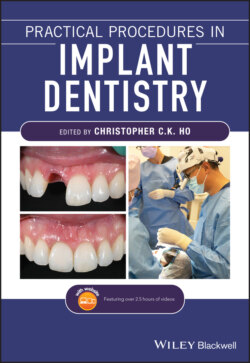Читать книгу Practical Procedures in Implant Dentistry - Группа авторов - Страница 15
2.1.1 Medical History
ОглавлениеThe general health status of a patient should always be assessed prior to any surgical procedure. Although there is minimal association between general health status and implant survival [2], there are certain situations where implant procedures may risk the health of a patient or possibly be associated with higher failure rates of osseointegration.
Medical questionnaires are routinely used and, in addition, it is best practice to verbally ask specific questions about the health of patients. There are two basic questions that a clinician should ask prior to implant surgical procedures:
1 Is the patient fit medically to have the procedure done?
2 Is there anything in their history that would interfere with healing and the normal osseointegrative process?
These two simple questions should form the basis of your questioning as to whether patients are able to undergo a surgical procedure and determine any risk factors with the healing process. There are very few absolute contraindications to implant surgery, however there are certain conditions which may increase the risk of complications with the surgical procedure or wound healing. The conditions listed in Table 2.1 have been suggested as possible contraindications to implant treatment and should be carefully managed.
Table 2.1 Relative contraindications to implant surgery.
| Diabetes |
| Tobacco use |
| Uncontrolled cardiovascular disease/hypertension |
| Cancer/leukaemia |
| Renal/liver problems |
| Bisphosphonate medications |
| Blood disorders/anticoagulant therapy |
| HIV/immunosuppression |
| Alcohol abuse |
| Psychological disorders |
| Pregnancy |
| Irradiation |
